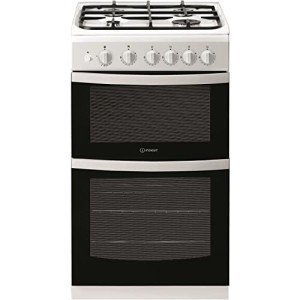Why People Don't Care About Gas Cooker Shop
The Gas Cooking Range: A Comprehensive Guide
Gas cooking ranges are a staple in numerous kitchens, renowned for their accurate temperature control, quick heating abilities, and general cooking efficiency. They have been a favored choice for both professional chefs and home cooks for years. In this short article, we will explore gas cooking varies in information, discussing their benefits, crucial features, upkeep suggestions, and answering regularly asked concerns.
Table of Contents
- Intro
- Benefits of Gas Cooking Ranges
- Key Features of Gas Cooking Ranges
- Maintenance and Care Tips
- Regularly Asked Questions
- Conclusion
1. Introduction
Gas cooking varies function by burning natural gas or lp to warm the burners and the oven. Their design can range from compact options best for little kitchen areas to larger, more professional models equipped with innovative features. Unlike electrical varieties, gas stoves offer instant heat changes and can reach heats rapidly, making them a preferred among culinary enthusiasts.
2. Benefits of Gas Cooking Range s
Gas cooking ranges supply different advantages that improve the cooking experience. A few of the most significant benefits include:
- Instant Heat: Gas ranges can offer instant heat upon ignition, which enables for quicker cooking times.
- Temperature Control: Cooks can easily adjust the flame size to manage cooking temperature with accuracy.
- Cost-efficient: In lots of locations, gas is cheaper than electrical power, making it a potentially more economical option.
- Adaptability: Gas ranges can manage different cooking approaches, such as simmering, burning, and sautéing, seamlessly.
- Dependability During Outages: Gas ranges can still work during power interruptions (supplied they have a manual ignition alternative), which can be an important advantage in emergency situations.
3. Secret Features of Gas Cooking Ranges
Understanding the crucial features of gas cooking varieties can help consumers in making informed choices when buying a new system. Here are some crucial elements to think about.
Feature
Description
Burner Types
Vary in size and power, from ultra-high BTU burners to simmering options, providing flexibility for different cooking needs.
Oven Type
Convection features that guarantee even cooking and baking; some models offer self-cleaning options.
Safety Features
Flame failure gadgets that cut off gas supply if the flame is extinguished; child locks offered in choose models.
Ignition Systems
Electronic or manual ignition options for varying ease of use.
Material and Finish
Stainless-steel, enamel, or cast iron are common materials with varying aesthetic options and resilience.
4. Maintenance and Care Tips
Keeping a gas cooking range is important for its durability and efficiency. Here are some essential tips for keeping the unit in optimum condition:
- Regular Cleaning: Clean burners and grates after every use to prevent buildup and maintain effectiveness.
- Look For Gas Leaks: Regularly inspect gas lines and connections for leaks using a soapy water solution. If bubbles form, it shows a leak that needs instant attention.
- Burner Alignment: Ensure burners are correctly lined up after cleaning or disassembly. Misalignment can trigger irregular heating.
- Oven Cleaning: Use self-cleaning functions as required or cleaner services particularly developed for ovens to preserve tidiness without extreme scrubbing.
- Service Regularly: Have the gas range serviced by a professional service technician a minimum of when a year to guarantee optimum efficiency and safety.
5. Regularly Asked Questions
1. Are gas cooking varies more efficient than electric ranges?
Gas varieties tend to be more efficient when it pertains to cooking speed and control, particularly for jobs needing fast heat changes.
2. Can gas ranges be utilized throughout a power interruption?
Yes, gas varieties that include manual ignition can still be utilized throughout power failures, making them useful in emergency situations.
3. How do I know if my gas range requires upkeep?
Indications that your gas range may require maintenance consist of uneven cooking, yellow flames, gas smells, or a drop in heating performance.
4. What should I do if I smell gas near my stove?
If you smell gas, shut off the stove immediately, aerate the area, and get in touch with a gas repair work service or your gas supplier for inspection.
5. Are there energy-efficient gas ranges offered?
Yes, numerous makers use energy-efficient models that consume less gas while still supplying excellent cooking efficiency.
6. Conclusion
In conclusion, gas cooking ranges are highly valued for their effectiveness, accuracy, and dependability. With a range of features and advantages that accommodate both amateur cooks and expert chefs, they stay a popular option in kitchen areas worldwide. Correct maintenance and care can help ensure that these appliances stay safe and practical for lots of years to come. As customers end up being progressively mindful of their cooking options, gas cooking ranges will likely continue to hold their location in cooking traditions around the globe.
By comprehending the advantages, features, and upkeep requirements of gas cooking varieties, individuals can make educated decisions about their kitchen setups, optimizing their cooking experience to match their preferences and requirements.
